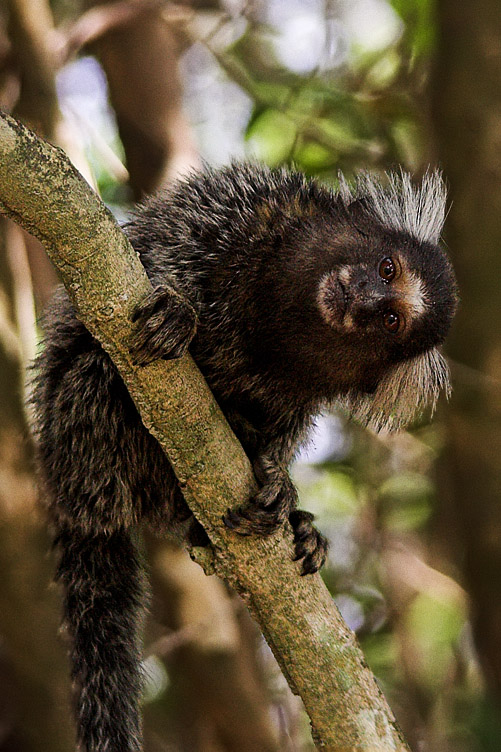CALIBAN I’ll show thee the best springs; I’ll pluck thee berries;
I’ll fish for thee, and get thee wood enough.
A plague upon the tyrant that I serve!
I’ll bear him no more sticks but follow thee,
Thou wondrous man.
TRINCULO A most ridiculous monster—to make a wonder of a poor drunkard!
CALIBAN I prithee, let me bring thee where crabs grow,
And I with my long nails will dig the pignuts,
Show thee a jay’s nest, and instruct thee how
To snare the nimble marmoset. I’ll bring thee
To clust’ring filberts, and sometimes I’ll get thee
Young scamels from the rock. Wilt thou go with me? (2.2.157-169)
Caliban knows how to find things, do things, make things; he is discerning. He knows the island as he knows himself, and this is the fullest account of its physical environment so far. Far from being barren, as the courtiers had sneered, there is plentiful fresh water, always the chief consideration. There are berries, and hazelnuts, young filberts, fresh and green in their husks, sweet, crisp and milky to eat. (At the Globe at least, the older dried variety was probably being snacked on by at least some in the audience.) I’ll fish for thee and see that there’s wood enough – perhaps specifically to cook the fish, but also referencing what seems to be a perennial source of conflict with Prospero – never enough firewood brought in. I’ll bear him no more sticks but follow thee – you are my new master, you wondrous man. Wonder is a key word in this play, because of Miranda, and because of its various spectacles; Stephano is most certainly not wondrous, except in his cursory kindness to Caliban in sharing his bottle and the fact that he is not Prospero. As Trinculo points out, he is merely a poor drunkard. But there’s an added resonance in the close juxtaposition of monster and wondrous or wonder here: Caliban is imagined as being exhibited, displayed as a curiosity, marvelled at, in effect; Stephano is imagined as the object of wonder, similarly to be marvelled at, although as divine, or superhuman. It matters, again, that Caliban speaks verse here; his lyricism contrasts starkly with the lumpen, drunken prose of the Neapolitans. And he continues to speak, to sing the island into being, as he shyly, joyously, lays out its bounty for his hearers and offers to share it. He will show them where crabs grow; probably crab apples, but possibly crustacea or shellfish. He will dig up pignuts, edible roots, with his long nails (an animalising touch). He will show them a jay’s nest: it might be for the eggs that it could contain, or for the beauty of the jay itself, with its brilliant, iridescent blue plumage. The berries and filberts and, possibly, crabs might suggest late summer or autumn, in which case, and being rather literal, eggs seem less likely? I like the idea of Caliban admiring the jay for its feathers alone, its nest a special thing, such as a child might hug to him or herself as a secret treasure. The nimble marmoset might be being caught for food, too, or possibly as a pet (they were kept as pets). And the scamels have occasioned much critical commentary and emendation. They could be shellfish, or sea-birds but, whatever, Caliban seems to regard them as a delicacy. This island is full of good things, and Caliban wants to share them – with his new masters.


